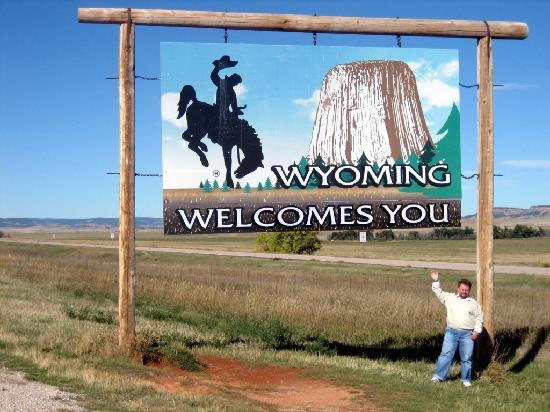The best: Wyoming. The worst: New York
So says the Tax Foundation in its annual State Business Tax Climate Index, which enables business leaders, government policymakers, and taxpayers to gauge how their states’ tax systems compare.
The Tax Foundation released its 2014 edition of the report this week. The report looks at how states raise revenue and compares more than 100 variables in personal income, corporate, sales, property, and unemployment insurance taxes.
The 10 states with the best business tax climates in this year’s Index are
- Wyoming
- South Dakota
- Nevada
- Alaska
- Florida
- Washington
- Montana
- New Hampshire
- Utah
- Indiana
The 10 states with the worst business tax climates are
- Maryland
- Connecticut
- Wisconsin
- North Carolina
- Vermont
- Rhode Island
- Minnesota
- California
- New Jersey
- New York
‘Tool for Better Policy’
“Our goal is to make the Index a tool to push for better tax policy,” said Index co-author Joseph Henchman. He noted major tax reforms recently enacted in North Carolina happened in part because of its ranking as one of the 10 worst business climate states. Elimination of the state’s estate tax, as well as cutting and flattening the income tax and lowering the corporate tax, will move North Carolina nearly 30 positions up the ranking when the reforms are fully implemented in 2015.
Eight of the top 10 states do without one or more of the major taxes: the corporate tax, the individual income tax, or the sales tax. Wyoming, Nevada, and South Dakota have no corporate or individual income tax; Alaska has no individual income or state-level sales tax; Florida has no individual income tax; and New Hampshire and Montana have no sales tax.
Lower, Simpler Taxes
But this does not mean a state cannot rank in the top ten while still levying all the major taxes. Indiana, which ousted Texas from the top 10 this year, and Utah have all the major tax types, but they levy them with low rates on broad bases.
Study coauthor Scott Drenkard said Indiana moved ahead of Texas in the ranking because of recent tax reforms including cuts in the personal and corporate income tax rates, giving Indiana some of the lowest tax rates in the country.
Kansas also made a good showing, the result of lowering and simplifying its sales and income tax rates.
Retroactive Harm in Minnesota
Minnesota, on the other hand, moved down to 47th in the ranking from 45th, largely the result of income tax hikes on those with incomes of more than $150,000. The increase was approved in May but made retroactive to January 1.
Virginia also moved down three places, mainly because of regional sales tax increases to fund a transportation bill. For the first time since the 1960s, Drenkard said, the general sales tax rate is higher in Northern Virginia than in Washington, DC.
The Tax Foundation’s Index has its detractors, including Slate.com business columnist Matt Yglesias, who sarcastically wrote the Tax Foundation is “explaining why there are no successful businesses in California or New York,” which are perennially ranked as having among the worst business tax climates in the country despite having many businesses.
“Note that it’s not just sunny California or hip New York that end up in the bottom 10 here—low-unemployment, high-wage Minnesota is almost as ‘bad’ as those states. Maryland, New Jersey, and Connecticut are three out of the four states with the highest median household income. The fourth is Alaska, whose ‘discover tons of oil’ economic development strategy is hard to replicate.'”
Taxes a Controllable Factor
But the Tax Foundation acknowledges taxes are only one factor in a state’s economic health, and they are a factor policymakers can control.
“Those high-tax states also have other non-tax qualities, and legacy investments and industries, that overcome the obstacle of a broken mess of a tax system for many businesses and individuals,” said Index co-author Henchman. “I wouldn’t call that success, because with a good tax system, you could be doing even better. Job growth is much better in states with better tax systems.”
Internet Info
“2014 State Business Tax Climate Index,” Tax Foundation: http://heartland.org/policy-documents/2014-state-business-tax-climate-index


